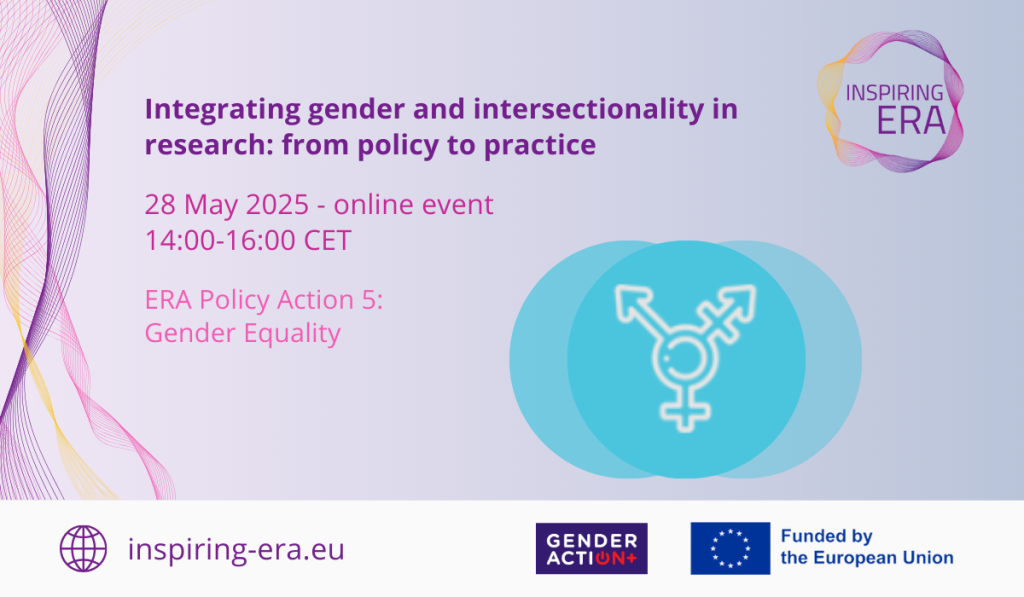On 28 May 2025, the INSPIRING ERA project, in collaboration with the Horizon Europe-funded GENDERACTIONplus project, hosted an online event on Integrating Gender and Intersectionality in Research: From Policy to Practice. This two-hour session gathered around 200 participants from across Europe and beyond, including researchers, project officers, and research support staff actively involved in designing, evaluating, or advising on research content within the European Research Area (ERA).

Bridging EU policy and research practice
The session opened with Hana Tenglerová, Policy Officer at the European Commission’s Directorate-General for Research & Innovation, who provided a clear overview of the evolving European policy landscape. Her presentation placed inclusive gender equality in the broader context of the ERA Policy Agenda and the EU’s Pact for R&I, highlighting how gender equality is integral to Europe’s vision of excellent, collaborative research. She also outlined current political priorities, as well as the recently adopted EU Roadmap for Women’s Rights, and reaffirmed that integrating the gender dimension into research is now a formal requirement in Horizon Europe, unless explicitly stated otherwise.
A new Framework for Inclusive Gender Analysis
Participants were also introduced to the new Framework for the Integration and Evaluation of Inclusive Gender Analysis in Research and Innovation Content, developed by the ERA Forum Sub-group on Inclusive Gender Equality. Lydia González Orta (Spanish Foundation for Science and Technology – FECYT) and Sophia Ivarsson (Vinnova) jointly presented the framework, which offers structured guidance for embedding gender and intersectionality into research proposals and evaluations.
Data, bias and guardrails: a research case study
A thought-provoking presentation was the use case presented by Professor Ericka Johnson (Linköping University, Sweden), on Intersectionality and Synthetic Data. She explored how gender and social bias can be amplified by artificial intelligence when working with synthetic datasets. Using real and synthetic US census data, she demonstrated how missing or misrepresented identities (like “female husbands”) can lead to what she termed “intersectional hallucinations.” Her work underscored the importance of methodological transparency and the need for robust metadata and ethical guardrails in data-driven research.
Tools to support implementation
To conclude, Lydia González Orta presented new tools developed under the GENDERACTIONplus project, aimed at helping researchers and support staff integrate inclusive gender analysis throughout the research cycle. These tools include infographics, position papers, as well as a free online course on the gender dimension in R&I.
Participants were also invited to join a new Mobilisation Network for Inclusive Gender Equality in R&I set up by GENDERACTIONplus.
The event was moderated by Helen Garrison, Project & Communications Manager at Public & Science Sweden and organised as part of its involvement in the EU INSPIRING ERA project, which supports the implementation of the European Research Area Policy Agenda.
Resources
All event materials, including the full recording, PPT slides, and additional links, have been made available on the INSPIRING ERA website.
